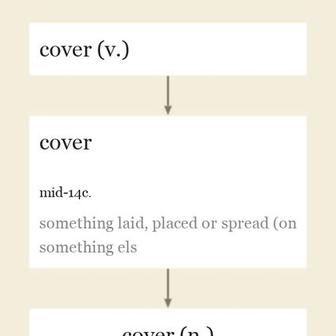undercover adj.
1854, "
Entries linking to undercover
Old English under (prep.) "
Productive as a prefix in Old English, as in German and Scandinavian (often forming words modeled on Latin ones in sub-). Notion of "
Under the weather "

mid-14c., "
Meaning "
Cover-charge is attested by 1913. The immediate sense of cover in it appears to be the old one of "
According to contemporary publications, cover came to include table condiments and bread and butter, and c. 1910 some restaurants began to charge extra for these. ["
In this sense, cover also probably involves the banquet service use of cover for a charge which includes ("
In recent years hotels, particularly those featuring entertainment in their restaurants, have made a so-called cover charge which includes entertainment in addition to the table service. For instance, at some of the larger hotels in New York, where there is dancing, or cabaret, or high-priced soloists, or entertainment of costly nature provided, there is a cover charge, sometimes as high as $1 the seat. [Hotel Monthly, December 1917]
updated on May 20, 2012